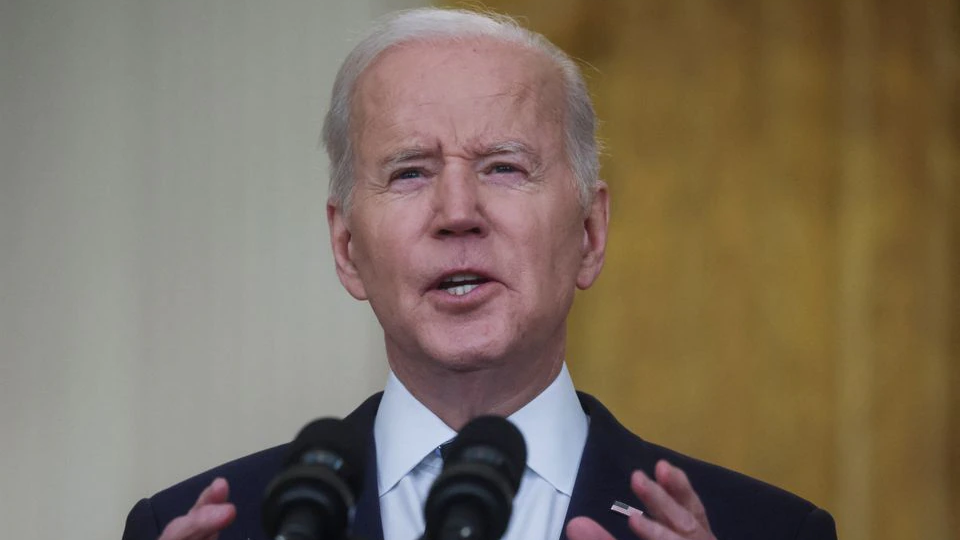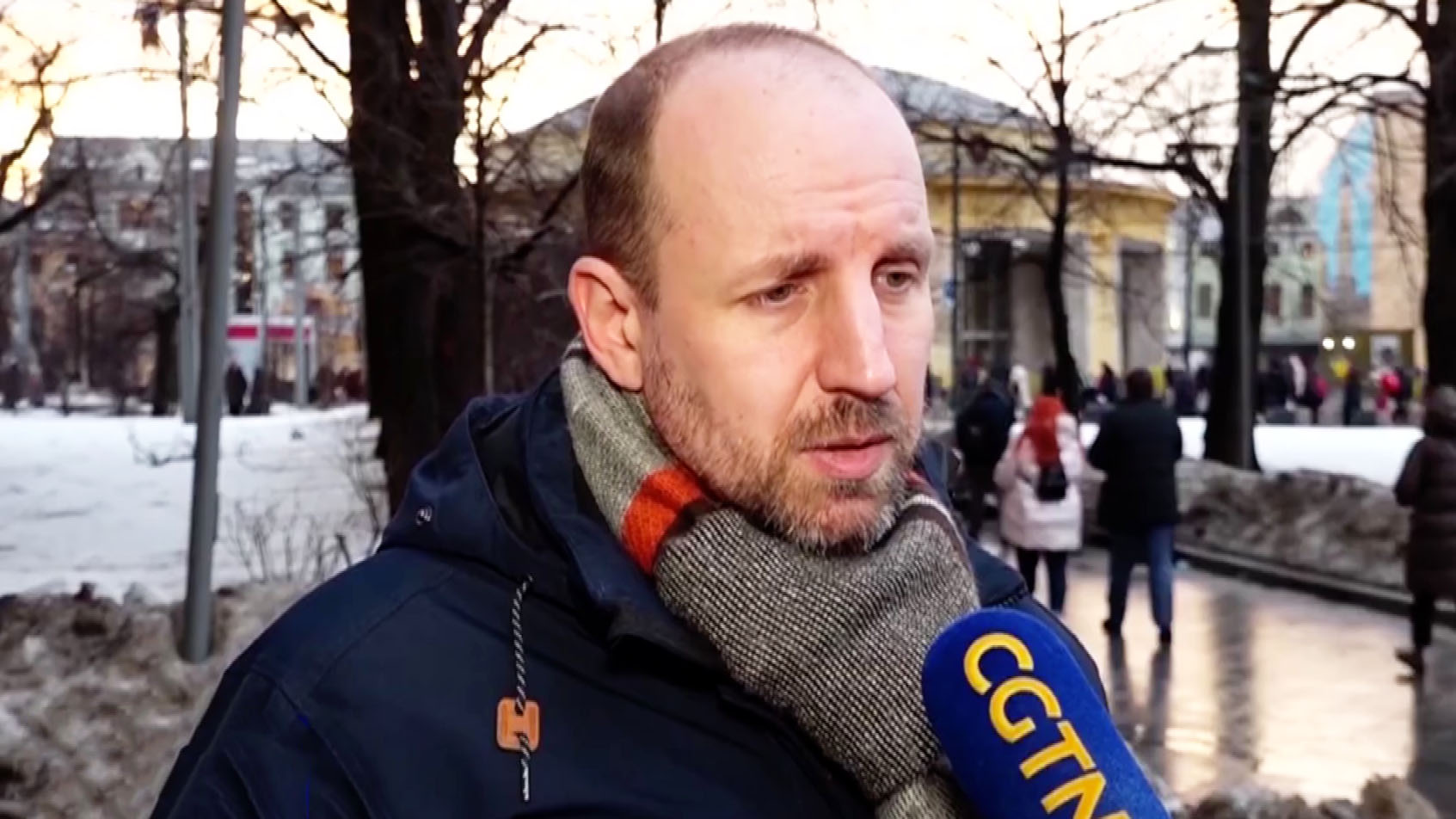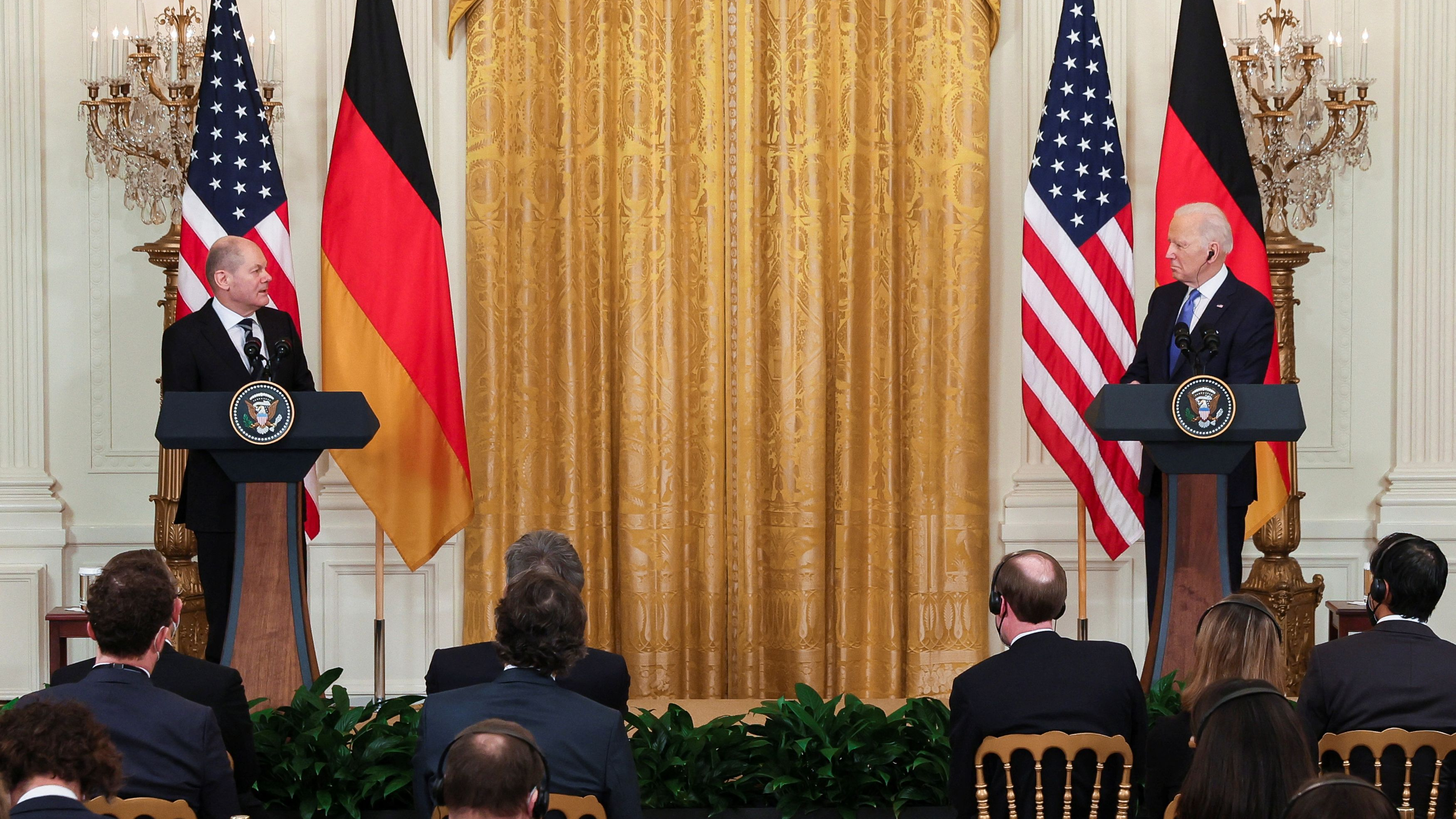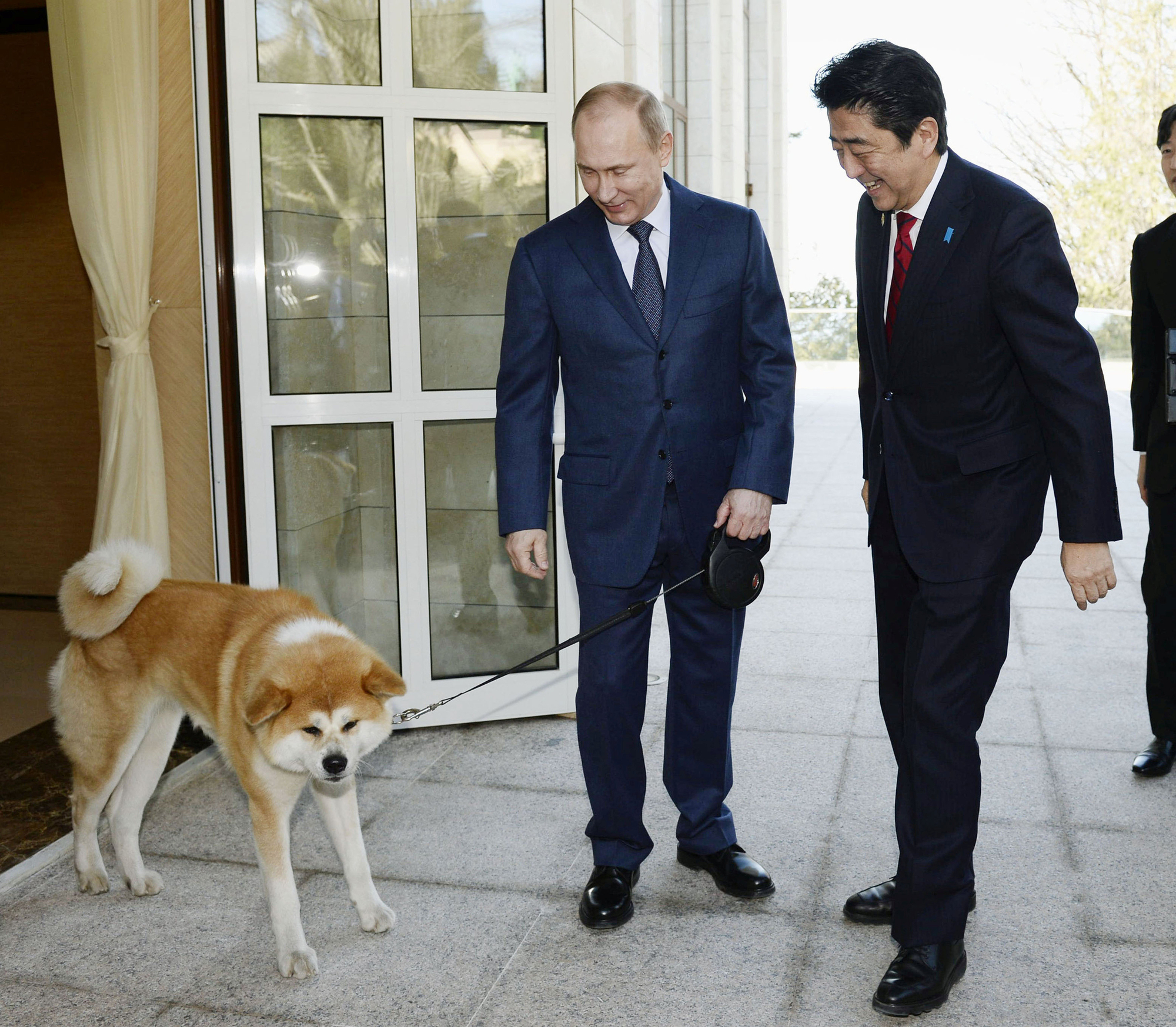
U.S. President Joe Biden delivers remarks on Russia's military operation in Ukraine in the East Room of the White House in Washington D.C., U.S., February 24, 2022. /Reuters
U.S. President Joe Biden delivers remarks on Russia's military operation in Ukraine in the East Room of the White House in Washington D.C., U.S., February 24, 2022. /Reuters
On February 23, the European Union declared sanctions on 351 members of the Russian State Duma. On the same day, Japanese Prime Minister Fumio Kishida said that Japan will stop trade with Luhansk and Donetsk, in addition to imposing visa bans and freezing the assets of officials associated with the two regions. South Korean President Moon Jae-in said on Thursday that South Korea will also support the international sanctions on Russia, though how exactly was unspecified.
This is not the first time in recent years American allies joined together against Russia. In the Crimea Crisis in 2014, the U.S.-led West collectively imposed a series of similar sanctions on Russian individuals and businesses.
At the time, the U.S. warned of cutting Russia off the Society for Worldwide Interbank Financial Telecommunications (SWIFT), an international financial institution that facilitates transactions between banks worldwide. But it was never carried out.
To Bogdan Bezpalko, member of the Russian Presidential Council for Interethnic Relations, the sanctions imposed this time around are not too different from the last – they are merely for show.
"I don't see any destructive threats from the sanctions, they are just paying lip service," Bezpalko told CGTN.
"(The sanctions) will be more decorative and secondary, perhaps the same as what they have imposed already like halting Nord Stream 2 – that project has not yet begun to work."
00:44

Nord Stream 2 is a long-awaited natural gas transportation project between Russia and Germany. The 1,234 kilometer-long sub-sea pipeline is designed to deliver Russian gas directly to Germany, and then from Germany to the rest of Europe. When put into use, the gas flow from Russia to Germany would double, satisfying the needs of 26 million households and greatly easing the soaring gas prices that Europe faces.
The U.S., however, strongly opposed the idea, citing concerns of Russia's growing influence in Europe. The project was conceived in 2011, but with intervention by the U.S., it was put on hold several times over the past years. The pipeline was completed in September 2021 but has since been standing idle pending certification. Now, it is suspended again under pressure.
In a meeting with German Chancellor Olaf Scholz on February 7, Biden made it clear: If Russia invades Ukraine, then Nord Stream 2 will be no more. When asked how exactly the U.S. will bring an end to the project, Biden responded: "I promise you, we'll be able to do it."
On February 22, Scholz announced that the certification for Nord Stream 2 "could not take place now."

U.S. President Joe Biden holds a joint news conference with German Chancellor Olaf Scholz at the White House in Washington D.C., U.S., February 7, 2022. /Reuters
U.S. President Joe Biden holds a joint news conference with German Chancellor Olaf Scholz at the White House in Washington D.C., U.S., February 7, 2022. /Reuters
Anton Fedyashin, professor of Russian and European history at American University, thinks there is still a chance for the project to live on, for Germany only suspended, instead of canceling the project entirely. It appears that the suspension was a token of allegiance to the U.S., but there is discord underneath the surface.
"There's plenty of disagreement, about which we don't hear in Western media, among the Europeans about the extent to which they will sanction Russia," Fedyashin said.
Aaron Mate, former writer and producer for Vice and Al Jazeera, also believes that Scholz is taking America's side with reluctance. Without the considerable amount of gas Nord Stream 2 would transport from Russia, high gas prices and supply shortages will continue to be a conundrum for Germany.
''I suspect that there's more of a split inside the German government than they've let on, and I think that is reflected in the fact that Chancellor had to be dragged into suspending Nord Stream 2," Mate told CGTN.
Germany is not the only country stuck between the U.S. and Russia. Japan, a long-time ally of the United States, also has substantial ties with Russia, and has tried for years to improve their bilateral relationship.
When former Japanese prime minister Shinzo Abe was in office, he sought to make Russia a closer partner. The two leaders met more than 20 times since 2012. As a friendly gesture, Japan even went out of its way to gift Putin, a dog lover, an Akita – a native Japanese dog breed.
According to Japan's Finance Ministry, petroleum, liquefied natural gas (LNG) and coal are among the top imports from Russia. A report from Nikkei Asia shows that in 2020, 8.2 percent of Japan's LNG imports and 14.5 percent of coal imports came from Russia.

Russian President Vladimir Putin and his dog Yume, which was presented to Putin by Japan's northern Akita Prefecture in July 2012, welcome Japanese Prime Minister Shinzo Abe upon Abe's arrival for their meeting in Sochi, Russia, February 8, 2014. /CFP
Russian President Vladimir Putin and his dog Yume, which was presented to Putin by Japan's northern Akita Prefecture in July 2012, welcome Japanese Prime Minister Shinzo Abe upon Abe's arrival for their meeting in Sochi, Russia, February 8, 2014. /CFP
Compared to the EU and Japan, South Korea is taking a softer stance against Russia, announcing no sanctions of its own.
As one of the world's top technological innovators, South Korea relies on selling its electrical and electronic equipment. Semiconductors, automobiles and machinery are among South Korea's top exports to Russia. But this could all be affected by the U.S.'s latest expansion on the Foreign Direct Product Rule, which now requires overseas companies that use U.S.-origin technology or software to make their own products and components to obtain a license from the United States before shipping them to Russia.
On Friday, Moon's presidential spokesperson Park Soo-hyun said in a local radio interview that if the U.S and Europe impose sanctions on Russia, then South Korea will naturally join in without much of a choice because they are all connected. But the country does not intend to impose unilateral sanctions, for the growing ties of Russia-South Korea trade.
"The (South Korean) government should also consider the fact that the scale of trade with Russia is growing. Korean companies and Koreans in Russia should also be considered," Park added, referring to South Korea's belated support to the joint sanction.
Parallels can be drawn with the U.S.'s attempt to isolate China on the international stage. In an address to its NATO allies in March 2021, U.S. Secretary of State Antony Blinken said that the U.S. will not force its allies into an 'us-or-them' choice with China," but this seeming tolerance was immediately followed by accusing China of "actively working to undercut the rules of the international system and the values we and our allies share."
Alexander Kulitz, former member of the German federal parliament, pointed out the contradiction between what the U.S. says and does in an interview with China Media Group (CMG), and said that a good ally for the U.S. is one that does its bidding.
"It is clearly defined by the U.S. government, by the U.S. administration that they want us to be more independent, but on the other hand, the minute we are independent in a way that does not comply with American ideas, such as the energy issue when it comes to Nord Stream 2, they do not appreciate Europe being independent."

